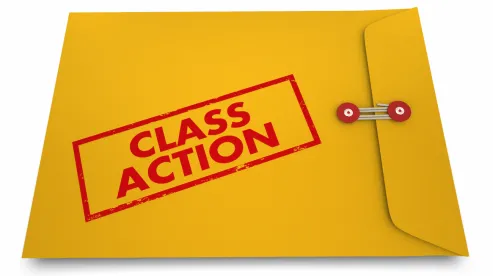The Middle District of Florida has denied a motion for class certification, finding the proposed class definition would have created a fail-safe class, the class members were not ascertainable, and the plaintiff’s claims were not typical of the class. Fennell v. Navient Solutions, LLC, No. 17-2083, 2019 WL 3854815, at *2 (M.D. Fla. 2019)
The plaintiff in Fennell alleged that, despite her revocation of consent, Navient had used an ATDS to repeatedly call her to collect a debt. Id. at *1. In response, Navient argued that, although it had used predictive dialers to call other people, it had not used that equipment to call the plaintiff because her delinquent loans had been assigned to Navient’s “Cures Unit,” which only made calls through manual dialing. Id. at *1, *2.
The plaintiff nevertheless moved to certify a class of all people in the United States “whose (1) cellular telephone number was called by [Navient]; (2) with an automatic telephone dialing system; (3) without consent; and (4) from December 4, 2013 to October 1, 2018.” Id. at *1 (citation omitted) (alteration in original). The Court denied the motion for three main reasons.
First, the proposed class would have been an “impermissible fail-safe class” because its definition incorporated all of the elements of a successful TCPA claim, such that any class member would be entitled to recover damages. Id. at *3, *4 (citations omitted). “Put another way, being granted membership in a fail-safe class is ‘synonymous with victory on the underlying claim.’” Id. at *3 (citing JWD Auto., Inc. v. DJM Advisory Grp. LLC, 218 F. Supp. 3d 1335, 1342 (M.D. Fla. 2016)). Because the class was defined to “include anyone whose cell phone was called by an ATDS without consent,” it would “mean that only those with a successful claim against Navient will be a member of Fennell’s proposed class.” Id. at *4. This would essentially create a no-lose proposition for class members – they would either win simply for being a member of the class, or they would not be included in the class and would not be bound by any loss.
Second, the proposed class was not ascertainable, since the plaintiff could not reliably identify unnamed class members. Id. at *5. The plaintiff’s attempt to use Navient’s Class System “stop calling” flags produced multiple false positives of those who did not revoke their consent to being called using an ATDS, but who nonetheless fell within the proposed class. Id. For example, the plaintiff’s method captured a borrower who told Navient to “stop calling [his] father in Ohio and deal with [him].” Id. (citation omitted) (alteration in original).
Third, the plaintiff’s claims were not typical of the class because every call made to her under Navient’s “Cures-Grid Campaign” was either hand-dialed or otherwise required an agent to manually select an account and click a button to initiate a call. Id. at *6. As the “potentially different use of the autodial versus manual dial feature” distinguished her case from those of other class members, the plaintiff herself would not be a class member and she failed to satisfy Rule 23’s typicality requirement. Id. at *5, *6 (citation omitted).
The Court concluded that the proposed class had many incurable deficiencies and therefore denied the plaintiff’s motion without leave to amend. Id. at *7.





 />i
/>i

